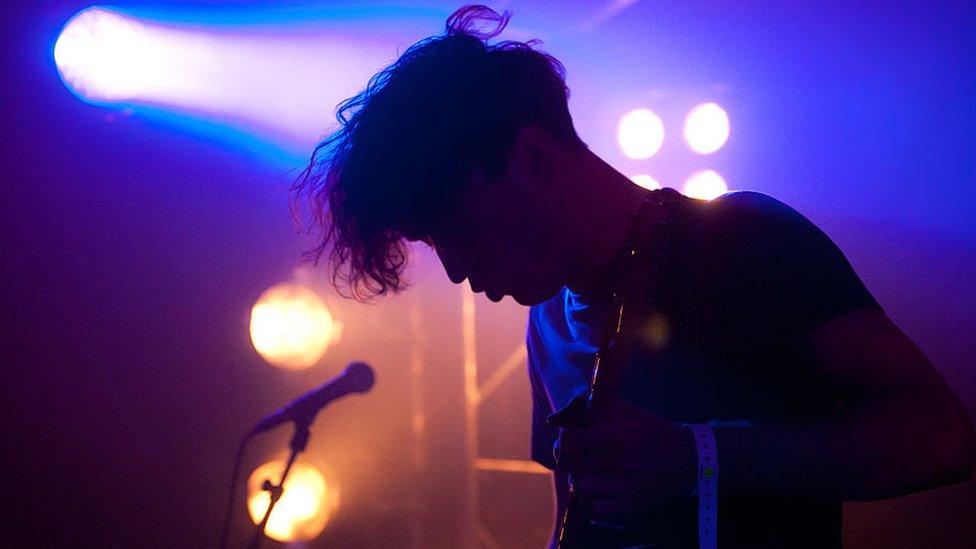Covid in Scotland: 'I found my sound during the pandemic'
- Published
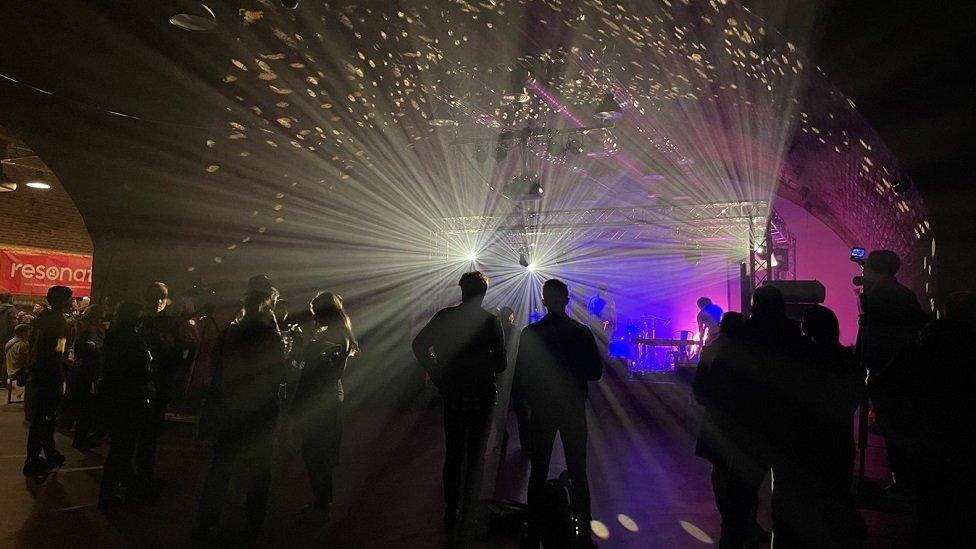
Resonate music conference live performance at Platform, Glasgow
The Covid pandemic has had a massive impact on live music and the wider industry, changing the way events are organised and how some artists perform.
The Resonate music conference provides a platform for up-and-coming artists to learn and network.
The event's organisers and some of the artists who took part told us how they had been affected - and their thoughts about the future of live performing.
'I didn't have anything'
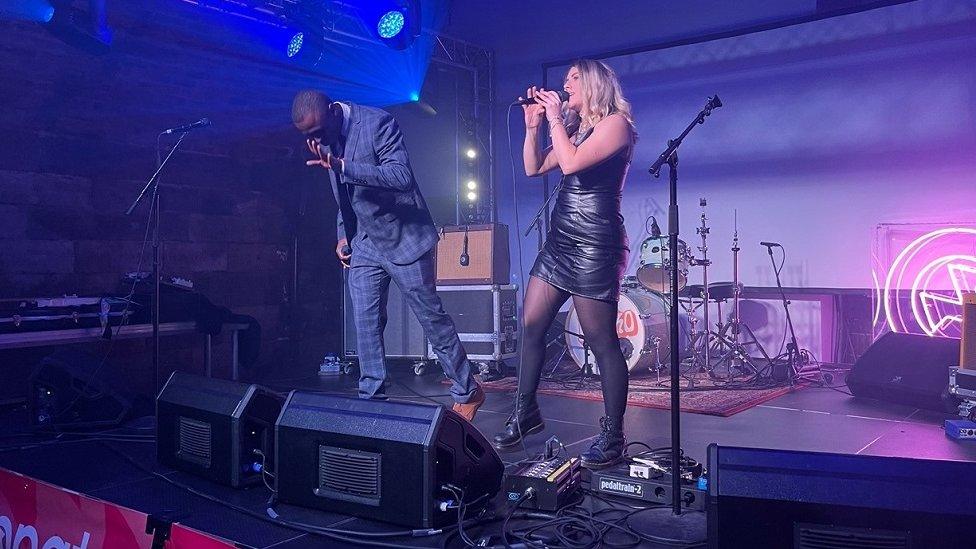
Pop artist Ama Jane performing live with rapper Chef at the Resonate music conference
Singer-songwriter Ama Jane's life was turned upside down by the pandemic.
"It was a killer. I was on cruise ships for five years and had at least 1,000 people watch my performance every week.
"When I came back home in 2020, I didn't have anything," she said.
The lockdown meant there were no opportunities to perform live - but Ama Jane found that she could still earn a living online.
"I was doing live sessions for tips and making my money that way.
"It did affect me a little bit financially, but I still made a little bit of money out of tips from doing Facebook lives and Instagram lives as well."
Ama Jane had never thought of making her own music before the pandemic, but during lockdown she turned to streaming platforms.
"The pandemic brought me back from cruise ships and that was when I started releasing my own music, so I'm very thankful for it," she said.
"Where we couldn't actually perform, I did it all online.
"Every time I release a song now, I always go online the day after and do a live gig. So, what I'm doing right now is going online, doing my live gig and then I direct them to my music video."
'We didn't have anywhere to go and be creative'
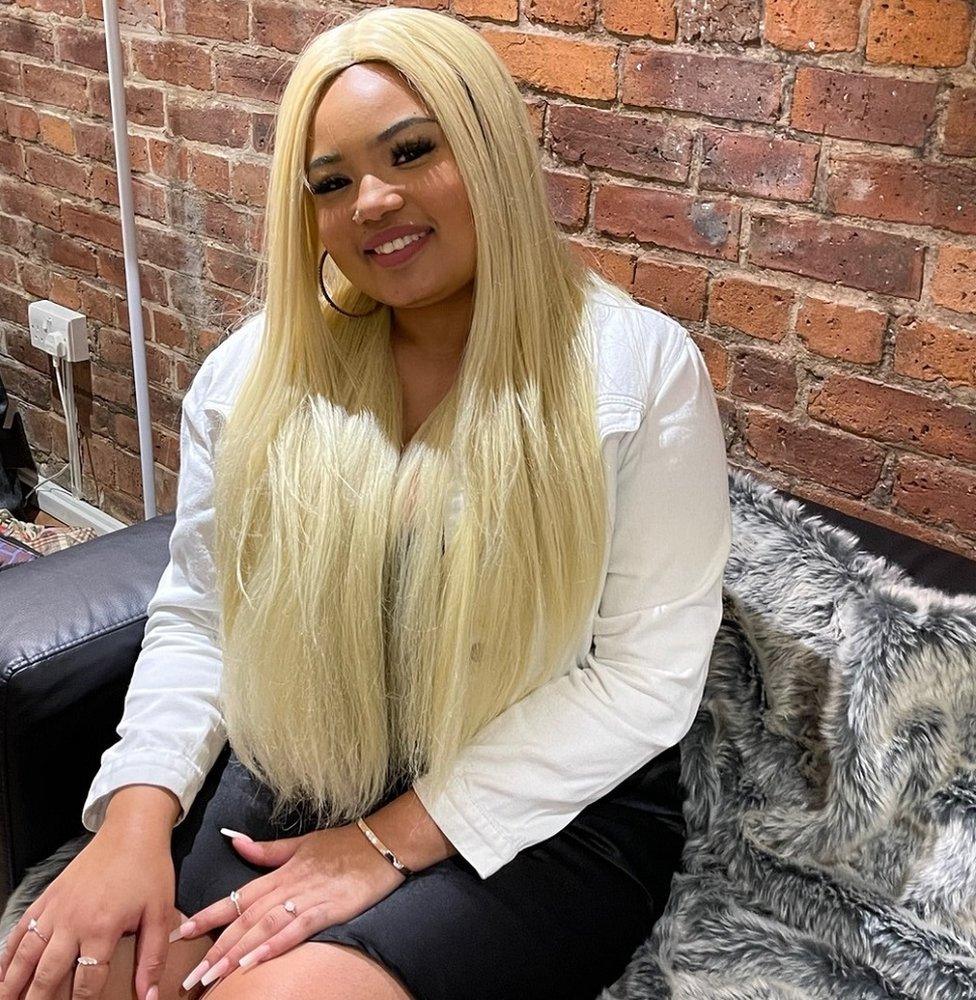
Aiysha Russell found her confidence during the pandemic
As a young artist, R&B singer-songwriter Aiysha struggled with her confidence. During lockdown she couldn't find inspiration when isolated from her usual musical environment.
She experienced periods of writer's block, making it difficult for her work on her own music and collaborations.
"Going from gigging a few times a month and networking to doing nothing was a really big change and it took me a long time to adapt to that," she explained.
"It was the fact that we didn't have anywhere to go and be creative."
Despite the setbacks, Aiysha says that lockdown gave her the opportunity to perfect her craft.
"Over the pandemic I found my sound. I'm a lot more comfortable performing and the inspiration is fully there because I have one genre to focus on."
'We were warned not to get the crowd to stand up'
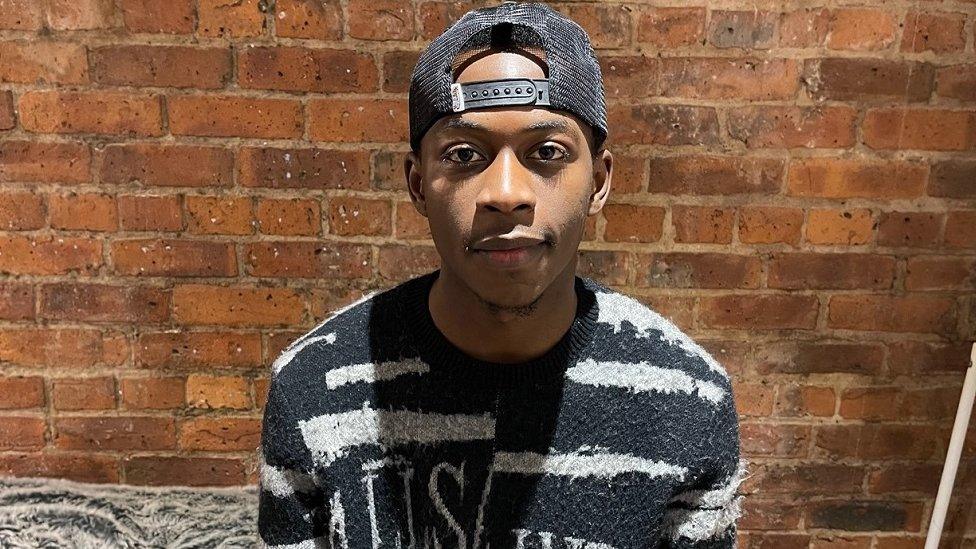
Nafe K had looked forward to his return to the stage
As the lockdown restrictions began to ease this year and live music started making a return, there were changes to how shows could take place in order to maintain social distancing.
For artists such as rappers Nafe K and Tru Nature, this meant they had to change the way they performed.
Although not much had changed on the stage, venues had strict new guidelines.
"At the beginning there was a lot of social distancing and seated performances going on," said Nafe K.
He said that made it difficult to get the energy in the crowd.
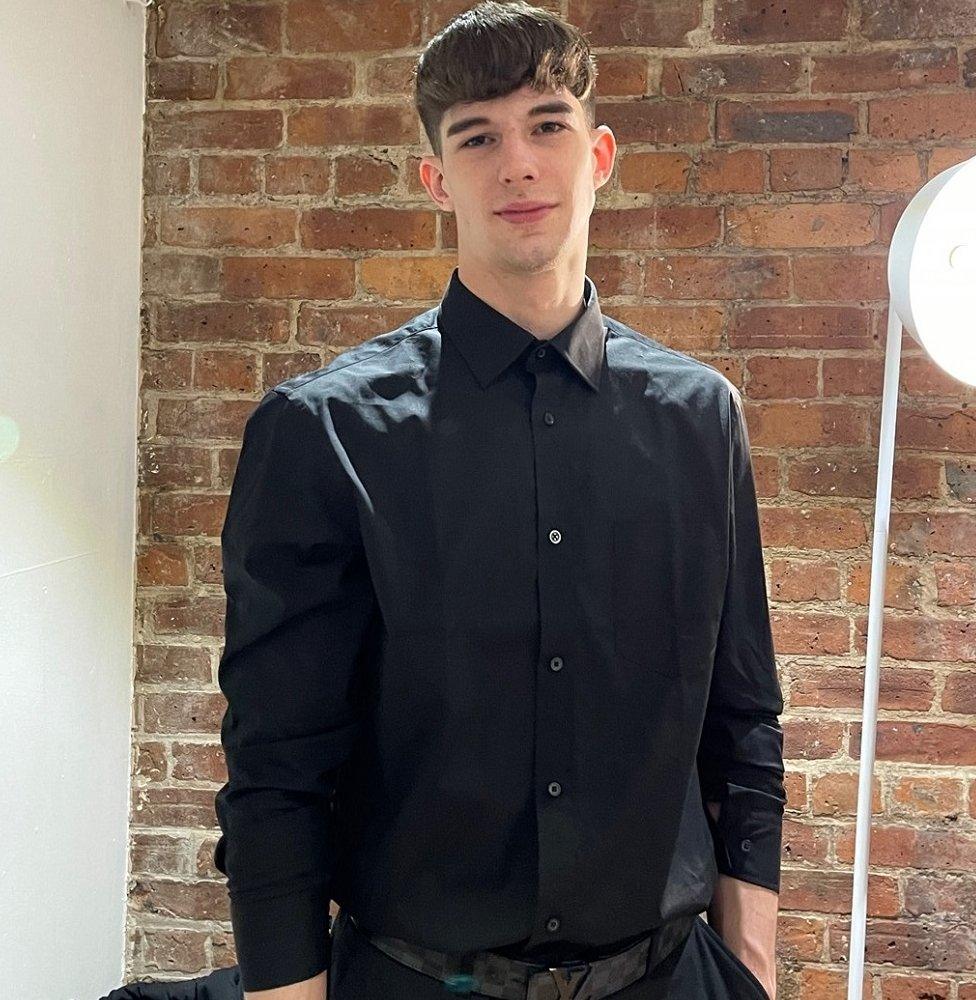
Tru Nature hopes live music will return to normal
"A lot of places have warned us not to try to get the crowd to stand up, which has been difficult," he added.
"As an artist, you want to see the crowd enjoying themselves and know they're having a good time."
Tru Nature also had similar experiences.
"We usually get people standing up enjoying the music, dancing a little, just engaging with the rhythm of the music, but that's not really happening as much now," he said.
'Hybrid events are here to stay'
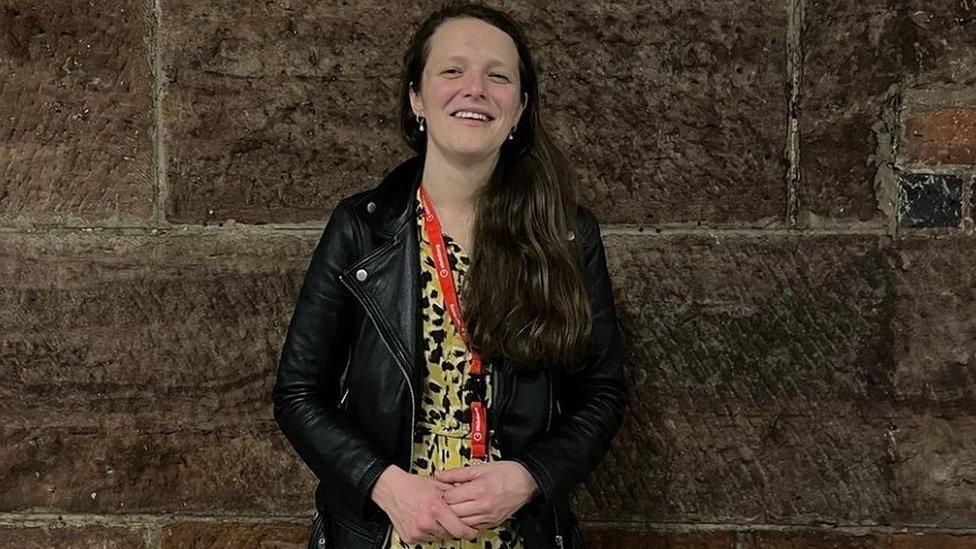
Susan Montgomery organised the live music event at Platform in Glasgow
Many artists and events have also been forced to move online since the start of the pandemic in 2020.
Performers have staged virtual concerts where fans can enjoy the experience of live music while stuck at home.
Last year, Resonate Scotland moved its annual conference online for the first time.
"We'd done little webinars on YouTube and little snippets of content, but nothing to the magnitude of running this conference online," said project manager Susan Montgomery.
This year they staged a hybrid event. The conference took place in Glasgow - and was live streamed through the digital conference space Hopin for those who could not attend in person.
The platform allowed people from across the world to access the programme in real time as well as interact with each other. Live performances were recorded and made available later.
Could such events be part of the future for live music, allowing some to have an in-person experience while those who do not yet feel comfortable socialising during the pandemic taking part virtually?
"I personally believe hybrid events are here to stay," Susan said.
"It was a changing moment for us and it's something we will carry forward for years for sure."
Related topics
- Published8 February 2021
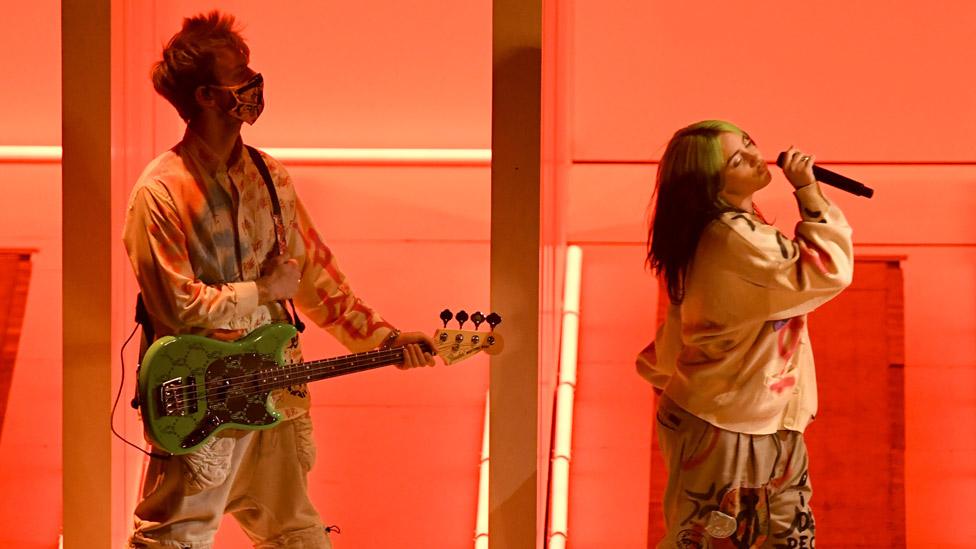
- Published30 September 2020
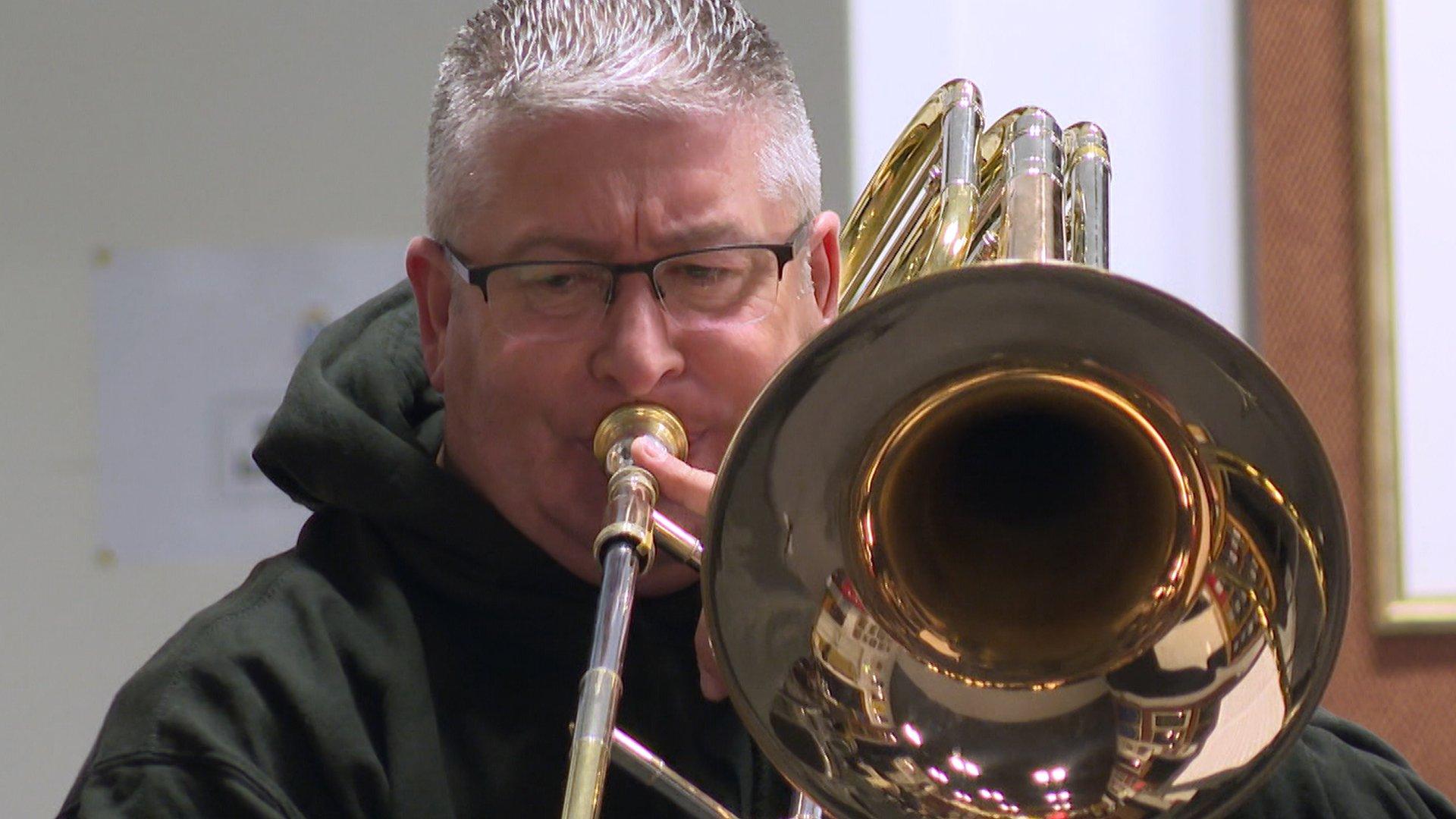
- Published19 October 2021
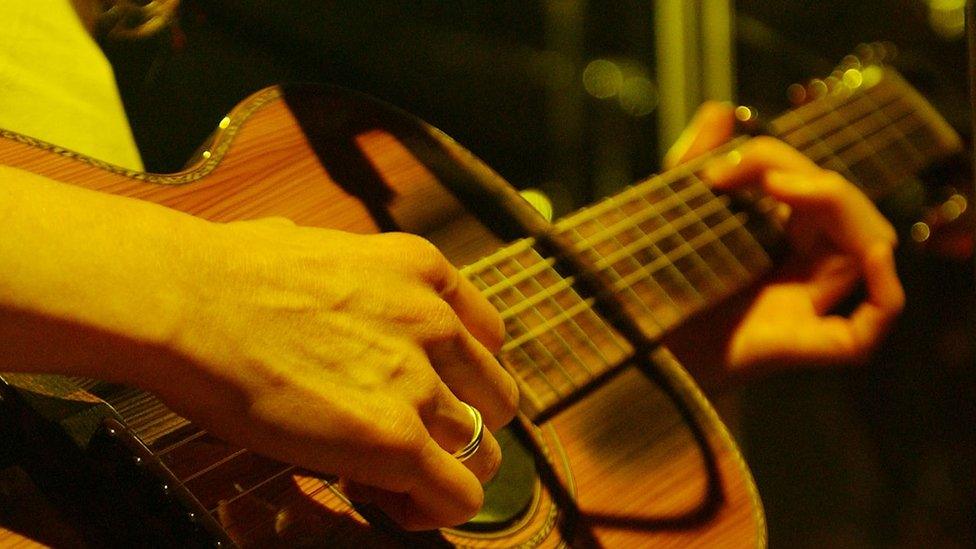
- Published23 November 2021
